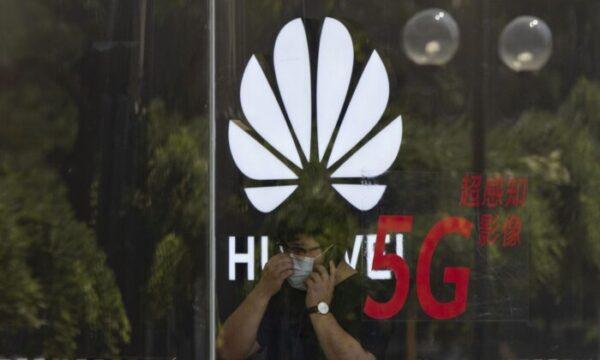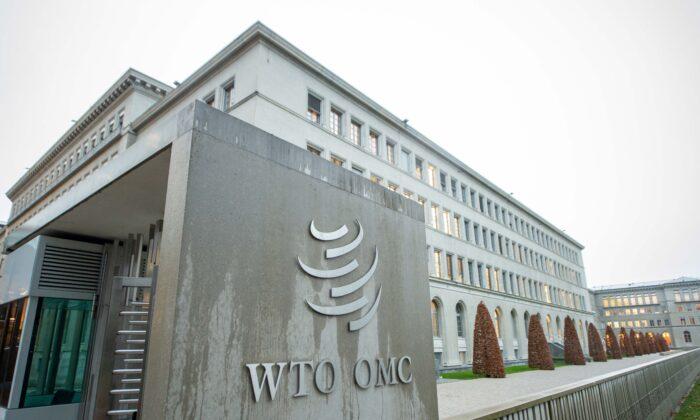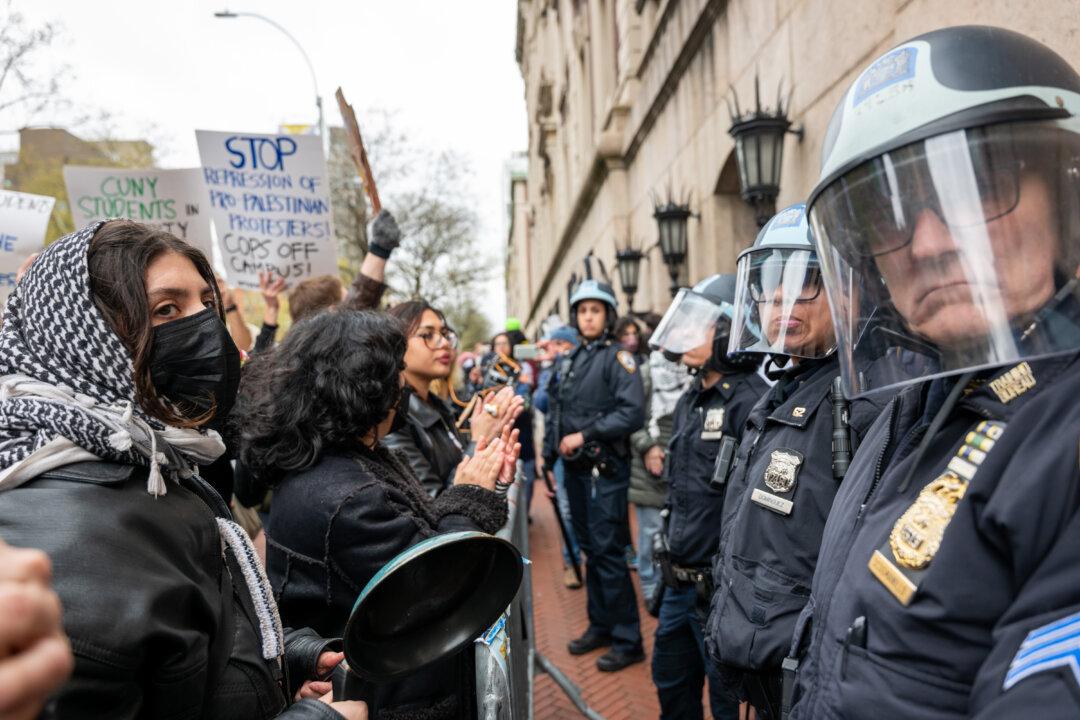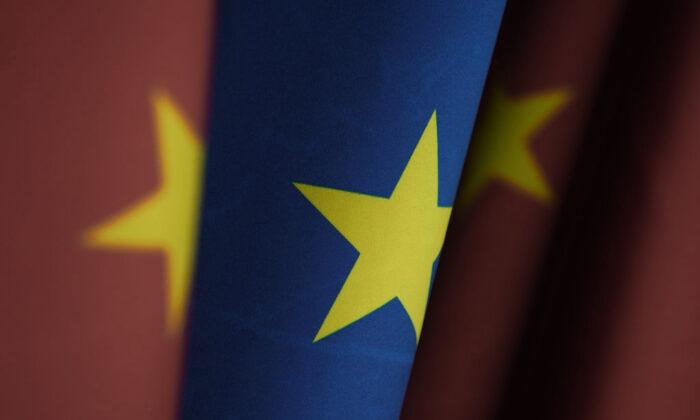China is playing the “discrimination” card. When the United States tries to protect itself from China’s big tech, usually for reasons of data security, China replies that America is “discriminating” against the country, a charge that can be interpreted as racism, a violation of World Trade Organization (WTO) rules, or both. But China’s claim is hypocritical, given its genocide against the Uyghurs, freedom of speech restrictions on American big tech, and a slew of trade barriers that prohibit market access by foreign firms. For America’s sake, and for the sake of democracies globally, the United States should be more discriminating with respect to China, not less. It is our failure to use trade leverage against China in the past that produced the China threat of today. More failures to discriminate only make the future threat more dire.
To the average American, “discrimination” sounds like racism, which is doubtless a subtext that Beijing wants to hype. But protecting American data from the world’s most powerful totalitarian and genocidal regime is not racism. We don’t take the same precautions against other Asian, African, or Latin American countries. It has nothing to do with race or even geography. China is a special case because it is so powerful, centralized, and communist as to be a threat to America and other democracies around the world.
“Discrimination” means something entirely different to a trade lawyer. The WTO agreements prohibit trade discrimination against any particular country. China uses the term “discrimination,” according to Nazak Nikakhtar, an attorney who specializes in international trade and national security at Wiley Rein LLP.
“Likely because it is invoking the widely-accepted non-discrimination principle enshrined in WTO agreements, where countries commit not to discriminate between trading partners, giving them all and equally ‘most-favored-nation’ status. By using the term ‘discrimination,’ the Chinese government is attempting to suggest that national security laws invoked by countries run afoul [of] this basic trade principle.”

But shouldn’t we discriminate against dictatorships that engage in slavery and genocide, as a means to leverage them into better human rights practices and perhaps democracy someday?
Ms. Nikakhtar noted that U.S. national security measures are typically invoked by the President under the authority of the International Emergency Economic Powers Act (IEEPA). America’s argument against a discrimination claim at the WTO would be based on the assertion that the nation is “acting in its essential security interests under Art. XXI of GATT [the General Agreement on Tariffs and Trade], which provides generally for exemptions to WTO obligations for national security reasons.”
While U.S. companies are therefore protected within the jurisdiction of the United States, that protection would likely not follow them to China. This catch-22 will increasingly stymie American companies in China as they are now both required to comply with U.S. sanctions against China, even when they are in China, while also being required by Chinese law not to comply.
“An affirmative defense by a U.S. company that it is legally bound by U.S. sanctions laws would not be sufficient to trump Chinese laws that prohibit ‘discrimination’ against a Chinese entity,” explains Nazak.
“It is reasonable to infer that, within China, the Chinese courts would rule that Chinese national security laws do in fact trump U.S. national security laws. Further, it is possible that Chinese entities would demand that commercial agreements between U.S. and Chinese companies stipulate upfront that Chinese laws would govern in the event of a dispute. But U.S. companies cannot legally commit to violating U.S. sanctions. Hence the dilemma and the inherent conflict between these laws, putting U.S. companies who wish to operate in China in a difficult position.”
China, by stealing data through its 5G and other technologies, is not playing by long-established rules, including those found in U.N. documents, that privilege data privacy and governance through democratic forms. International organizations typically include democratic institutions, for example the U.N. General Assembly, which provides each country with a vote, as integral to their governance processes. The U.N. Universal Declaration on Human Rights (1948) explicitly supports fair elections.

Today, the United States, European Union, Japan, and other democratic governments, are starting to fight back, albeit too slowly. In the tech space, they are developing the concept of trusted technology providers that manufacture in democracies. China is not trusted with information infrastructure, because countries realize that information is power, and China is a totalitarian dictatorship. It has too much power already.
This United States, which is the world’s most powerful democracy, enjoys relative trust because it has proven itself to be fair-minded, even against adversaries like China. This relative global trust in the United States is forcing it into a costly and risky leadership position against illiberal would-be hegemons. Other smaller democracies most often attempt to free ride on America’s provision of global security, which tends to be even-handed towards nations, as long as they are democratic, or at least benignly autocratic.
But the United States is even-handed and generous to a fault, rewarding adversaries on an equal basis with allies, and lacking in effective demands that all countries pay their fair share. This squanders American leverage to promote democracy and human rights. Free riding is dangerous to U.S. allies globally, because it typically entails low defense expenditures and free trade with China in order to maximize short-term economic gain at the national level.
China’s trade with the United States and our allies, most of which are free-riding to some extent, has allowed China’s impressive economic expansion since it was allowed to join the WTO in 2001. Given the country’s genocide against the Uyghurs, and its expansion into the global information technology infrastructure, that membership should now be reconsidered.
The only way to effectively defend against China’s growing information technology now is through global sanctions, not sanctions by any one country, even one with an economy as large as the United States. America cannot fix China’s threat to the world’s privacy alone. The world’s information highways are a network, and the more nodes that China occupies, the less secure is all of our data.

Huawei told the New York Times, “Blocking the purchase of equipment, based on a ‘predictive judgment,’ related to country of origin or brand is without merit, discriminatory and will do nothing to protect the integrity of U.S. communications networks or supply chains.” But no predictive judgement is needed given Chinese laws that already exist, and that require its companies to cooperate with Chinese authorities when they demand data. China’s national security threat is black letter law in China.
If Americans and our allies don’t increase discrimination against China soon, we will continue to be undiscriminating in our purchases and thereby purchase from China as the cheapest source, and the one that hands the keys of the information kingdom to Beijing. Of course Chinese information technology is cheaper for now—because China dumps its goods aggressively, and lacks the basic standards of freedom and decency, including on the issue of forced labor, that democracies put in place to protect cultures, communities, ecosystems, and norms from the focused drive for power above ethics, that is the rule of the Chinese Communist Party.





